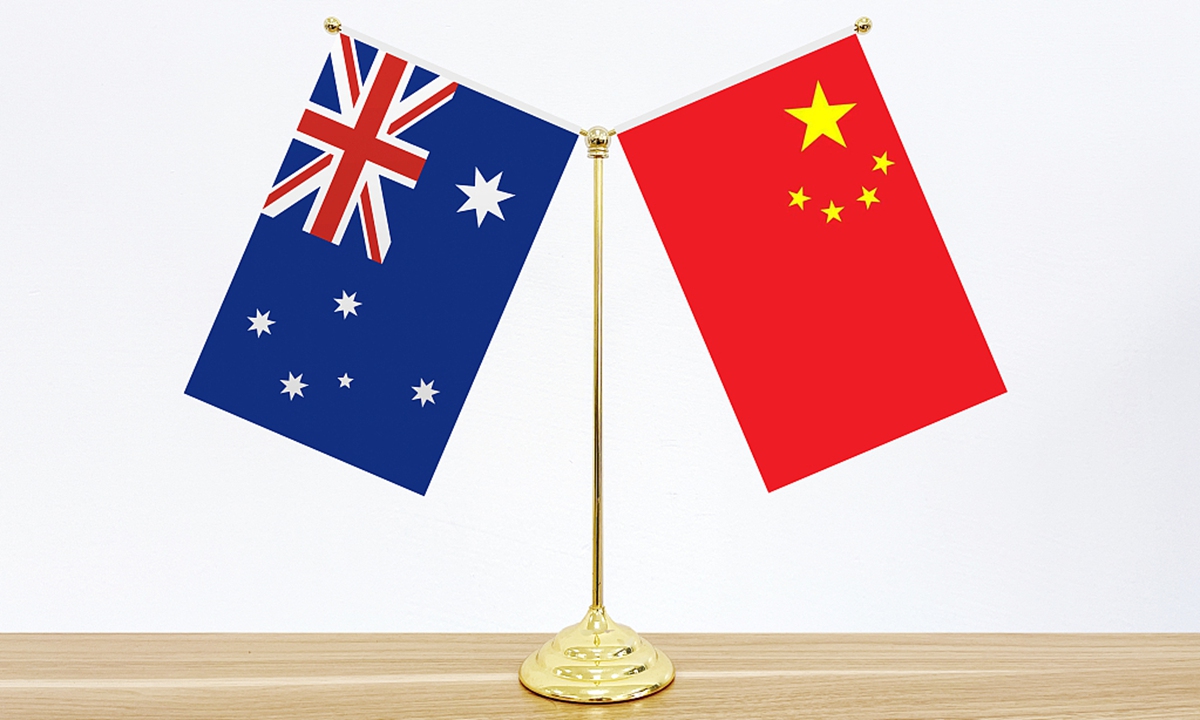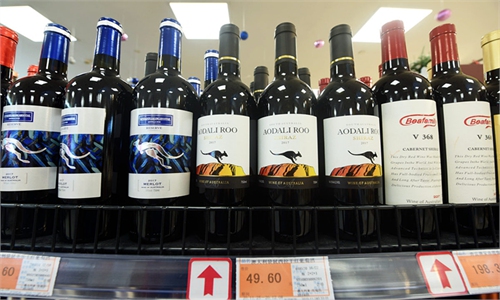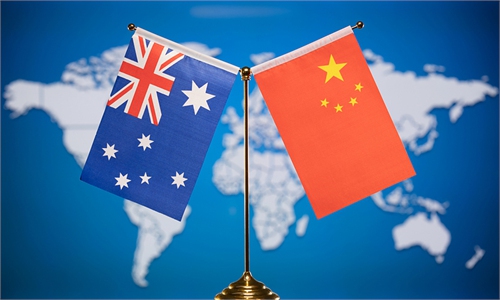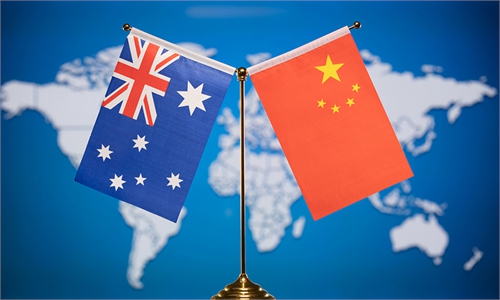China-Australia ties to get boost with Premier Li’s visit, with Australian businesses expecting deepened bilateral economic cooperation
Bilateral economic cooperation expected to deepen

China Australia Photo: CFP
The thawing relations between China and Australia are expected to get a significant boost with the ongoing state visit of Chinese Premier Li Qiang to Australia starting on Saturday, the first visit by a Chinese Premier in seven years, Australian officials and business representatives said.
Against the backdrop of the high-level visit, business insiders said that improved relations could facilitate deepened bilateral economic cooperation, expand trade in key goods and foster advances in collaboration in booming sectors such as electric vehicles (EVs), where both sides complement each other extensively.
Li arrived in Adelaide on Saturday for an official visit to Australia, the second leg of his three-nation tour, the Xinhua News Agency reported. During his stay, Li and Australian Prime Minister Anthony Albanese will co-chair the ninth China-Australia Annual Leaders' Meeting and jointly attend a China-Australia CEO Roundtable Meeting.
Speaking about the prospects of the high-level visit, Vaughn Barber, chairman of the China-Australia Chamber of Commerce (AustCham), told the Global Times in an exclusive interview on Sunday that the visit is a significant step in strengthening bilateral relations and "we anticipate several positive outcomes from this visit."
Enhanced dialogue at the highest levels will foster mutual understanding and trust, which are essential for long-term economic and trade cooperation, Barber said.
This visit also provides an opportunity to discuss and potentially resolve outstanding trade issues, paving the way for more stable and predictable trade relations, Barber said.
Moreover, increased interaction can lead to the identification of new areas for collaboration, benefiting both economies by diversifying and deepening trade and investment ties, the chairman said.
In addition to Australian businesses' investment in China, Chinese investors should be able to find better conditions to do business in Australia, the industry insider said.
"Hopefully the improved atmospherics will enable progress to be made toward providing greater clarity about the areas where investment from Chinese companies is welcome," Barber said.
He noted that this will enable major projects to make progress with greater certainty, in partnership with Australian companies and local communities, in areas where Chinese companies are able to bring capital, technology and scale advantages.
Barber has travelled to Canberra at the invitation of Albanese to attend a lunch in honor of the Australia-China relationship that will be held at Parliament House on Monday, the Global Times learned from AustCham.
Relations between China and Australia have improved under the Albanese government, making an important turnaround from the former Morrison government, which had a hostile policy toward China that sent bilateral relations to the lowest ebb in decades.
Trade in major goods such as coal, barley, wine and cotton has gradually recovered amid improved relations. Very recently, Australian beef sales to China showed signs of recovery.
Patrick Hutchinson, CEO of the Australian Meat Industry Council (AMIC), told the Global Times on Sunday that the AMIC welcomes improvements to the trade and access arrangements for Australian meat establishments to China.
Premier Li's visit to Australia marks a milestone in the bilateral relationship, and provides an opportunity to build on recent progress and make continued inroads in expanding the number of meat processors that are able to supply the Chinese market, Hutchinson said.
Australian businesses aim to further grasp opportunities in the Chinese market as bilateral ties continue to improve.
There is speculation that that Australian lobster trade would resume soon, according to media reports. Barber said that if lobster exports were to resume, "it would further demonstrate commitment to resolving outstanding trade issues and expanding the bilateral trade portfolio."
Australian lobster is highly regarded in China for its quality, and reopening this market would benefit both Australian exporters and Chinese consumers, Barber said.
Other sectors also offer high complementarity. There is significant potential to collaborate on the green transformation and high-quality development. The AustCham China chairman named several key sectors for this cooperation, including renewable energy, where Australia has abundant natural resources and China has technological expertise and manufacturing capabilities.
Barber noted that the shift toward EVs and sustainable transportation infrastructure in Australia offers a significant opportunity for Chinese investment. "With China's advantages in EV technology and battery production, there is immense potential to transform Australia's transport sector," he said.
"By combining our strengths, Australia and China can accelerate the global transition to a net-zero future and set a powerful example of international cooperation against climate change," Barber further noted.
Basil Zempilas, Lord Mayor of the City of Perth, told the Global Times in an exclusive interview that Western Australia has a very strong trading relationship with China, and he expects collaboration with China will grow stronger.
Economic and trade cooperation has always been the catalyst and booster for bilateral relations, which have never changed over time, given the high complementarity between the two, Chen Hong, director of the Australian Studies Center at East China Normal University, told the Global Times on Sunday.
"This high-level visit is expected to promote comprehensive bilateral relations starting from economic and trade relations to achieve higher levels and greater depth," Chen said.
"China-Australia relations cannot afford setbacks or retrogression. For the Australian side, strategic prudence and political wisdom are needed to manage the differences. Both sides should make maximum efforts to avoid another decline in bilateral relations," Chen said.
In the first four months of this year, China's trade with Australia reached 525.57 billion yuan ($72.44 billion), down 1.7 percent year-on-year, customs data showed.




